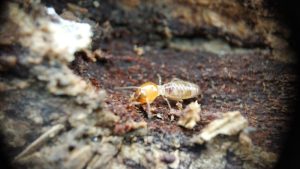Understanding Soil Poisoning and Termite Treatment
Soil poisoning and termite treatment are related but distinct processes aimed at protecting buildings and structures from the destructive impact of termites. While they share some similarities in their goals, they differ in their methods and specific objectives.
Soil Poisoning:
Soil poisoning, also known as soil treatment or soil sterilization, involves the application of chemical agents to the soil beneath and around a building’s foundation. The primary objective of soil poisoning is to create a chemical barrier that prevents termites from entering the structure or infesting the surrounding soil. This barrier acts as a deterrent, effectively repelling or killing termites before they can cause damage.
The chemicals used in soil poisoning are typically termiticides, which are specifically formulated to target and eliminate termites. These termiticides may include liquid formulations that are injected into the soil or granular formulations spread over the ground. Once applied, the termiticide forms a protective barrier that remains effective for an extended period, providing long-term protection against termite infestations.
Soil poisoning is an essential preventive measure commonly undertaken during the construction phase of buildings or as part of termite management programs for existing structures. By treating the soil before construction begins or before the foundation is laid, property owners can proactively safeguard their investments against termite damage.
Termite Treatment:
Termite treatment, on the other hand, refers to the process of eliminating existing termite infestations within a structure or its immediate surroundings. While soil poisoning aims to prevent termite infestations, termite treatment addresses active infestations that have already occurred.
Termite treatment methods may vary depending on the severity of the infestation, the type of termites involved, and the specific characteristics of the structure. Common termite treatment techniques include the application of termiticides directly to termite colonies or infested areas, baiting systems that lure termites away from the structure, and physical barriers such as termite shields or traps.

Unlike soil treatment, which focuses on creating a preventive barrier in the soil, termite treatment targets the termites themselves, aiming to eradicate existing colonies and prevent further damage to the structure. Effective termite treatment requires a thorough assessment of the infestation, careful selection of treatment methods, and ongoing monitoring to ensure long-term success.
Looking For Soil Poisoning or Termite Treatment?
In summary, while soil treatment and termite treatment are both aimed at protecting structures from termite damage, they serve different purposes and employ distinct methods. Soil poisoning is a preventive measure that creates a chemical barrier in the soil to deter termites from entering a building, while termite treatment focuses on eliminating existing infestations within the structure. By understanding the differences between these two approaches, property owners can implement comprehensive termite management strategies to safeguard their investments against termite damage.

